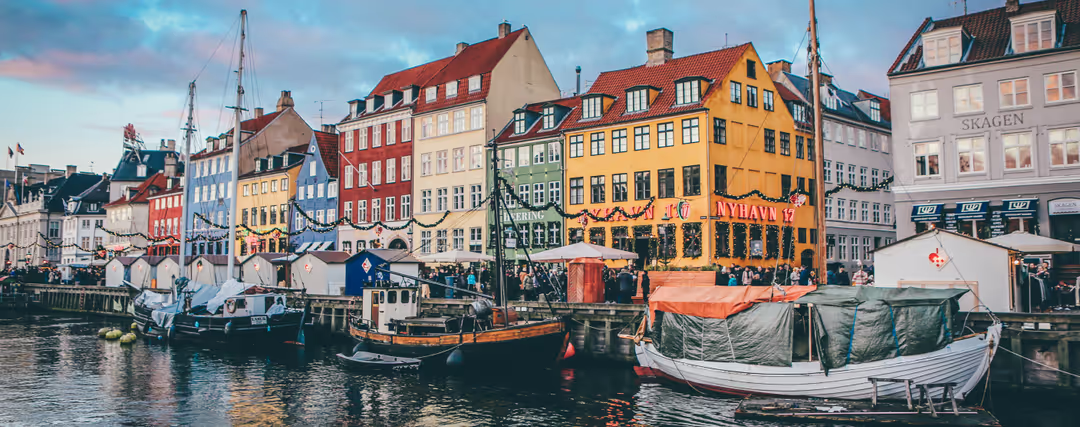

Are you considering doing your Erasmus in Denmark and want to know the most important aspects of it? Well, you’re in the right place! In this article, we tell you everything about the best cities to study in, options and requirements for international students, what to do during your stay, information about accommodation alternatives and the best Universities.
Denmark, with its rich history, picturesque landscapes and world-renowned education system, is an attractive destination for those who want to combine their studies with a society with a high quality of life and a progressive approach. Let's get to it!
Several cities are popular Erasmus destinations in the country. Copenhagen, the Danish capital, is usually the most chosen. It offers a unique experience, with renowned universities, a lively cultural scene and impressive architecture that blends with the beauty of its canals. Aarhus, the second largest city, presents itself as a university city, where the student community combines with a very dynamic arts and cultural scene. On the other hand, Odense, the birthplace of Hans Christian Andersen, provides a more serene and picturesque setting, combining history and literature in its cobblestone streets and cultural festivals.
The following are the most popular cities as Erasmus destinations in Denmark:
The Danish education system, distinguished for its high quality, is one of the compelling reasons to study in the country. It fosters a participatory and collaborative approach, ideal for the development of practical skills and critical thinking, unlike many other European countries.
Denmark is known for its exceptional quality of life, with high well-being, safety and sustainability standards. Danish society promotes equality and inclusion, allowing international students to experience a welcoming and diverse environment.
You will be able to delve into Danish culture and its different aspects. One of the most prominent, known worldwide, is the "Hygge". It’s a way of life in which everything that’s considered cosy predominates. That is, it focuses on creating moments and different environments that make you feel comfortable, in a pleasant and unpressured atmosphere. A typical example is sitting on the couch with a cup of coffee, a book and a blanket in winter. You’ll surely enjoy it!
Even though the official language is Danish, during your experience you’ll be able to study and communicate with other students in English. This will help you to gain fluency and improve a lot in this language.
Here are the highlights of each region of the country, so you can visit what you most want to see in each of them:
The region of Zealand (Sjælland) is home to the capital, Copenhagen, and is Denmark's cultural and economic epicentre. The island of Zealand is distinguished by its lively urban life, the historic architecture of the capital, and the presence of numerous museums and theatres. It also has beautiful beaches and countryside.
For its part, Jutland (Jylland) is known for its geographical diversity. The west coast offers extensive beaches and dunes, while the east offers hills and forests. Here, the city of Aarhus is an important educational and cultural centre.
The region of Fynland (Fyn) is known for its rural charm, with picturesque landscapes, small villages and green fields. The main city, Odense, is famous for being the hometown of children's fairy tale writer Hans Christian Andersen (he wrote none other than "The Little Mermaid"!) The island also has a rich maritime history.
The Minor Islands (Øer) are a group of islands that include Lolland, Falster and Møn, and feature diverse landscapes and a more relaxed atmosphere. Møn, for example, is known for its white cliffs, and the island of Bornholm, in the Baltic Sea, has a unique identity.
Find the ideal accommodation in your desired location